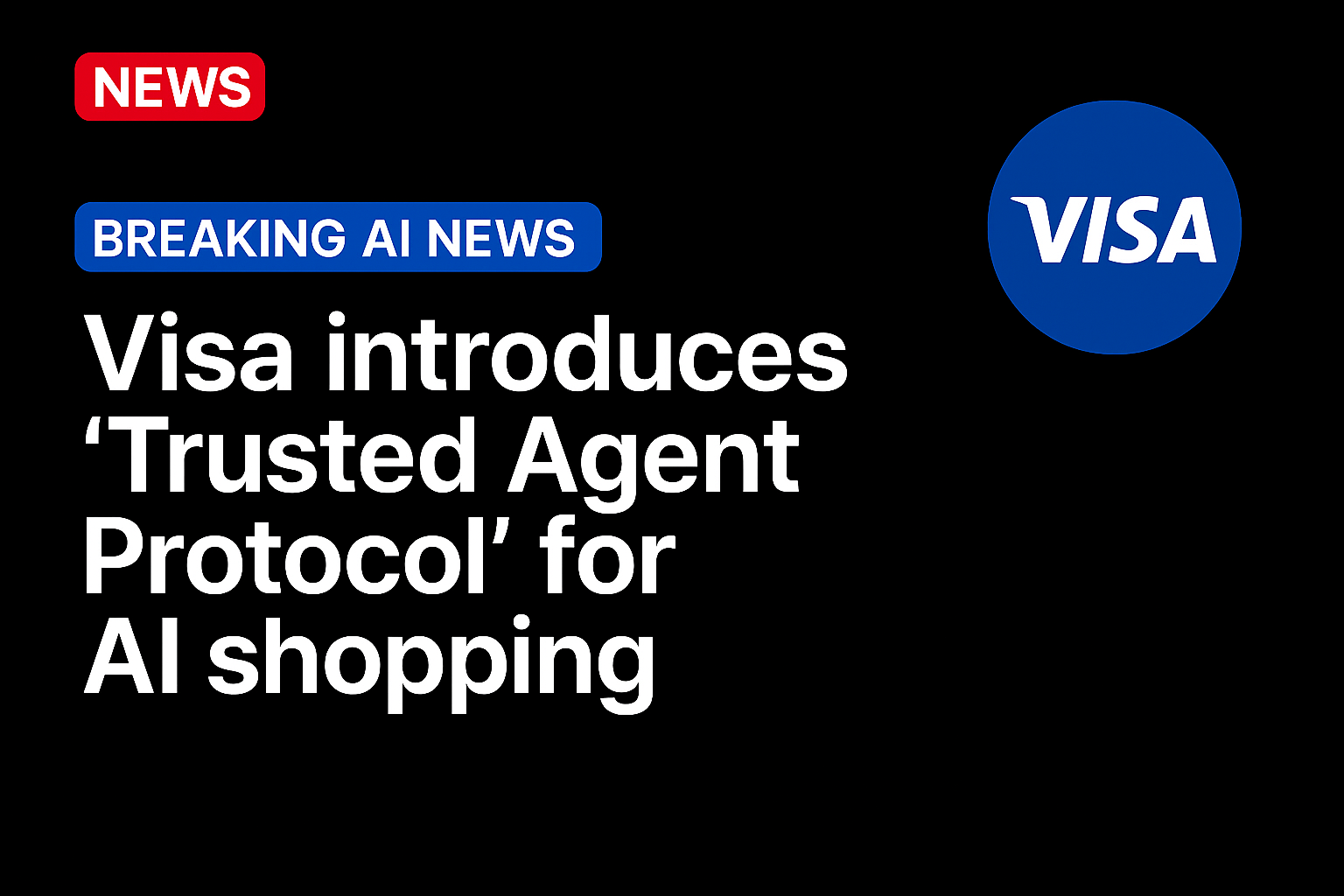Visa has introduced a tool allowing secure communication between merchants and artificial intelligence (AI) agents.
The Trusted Agent Protocol, announced Tuesday (Oct. 14), and created in partnership with Worldpay and Cloudfare, is designed to address the challenges centered around agent-driven commerce.
“We believe the entire payments ecosystem has a responsibility to ensure sellers trust AI agents with the same confidence they place in their most valued customers and networks,” Jack Forestell, Visa chief product and strategy officer, said in a news release provided to PYMNTS.
“For the past year, we’ve worked closely with sellers, issuers and partners to make sure agent-initiated transactions are as seamless and secure as any payment today. Our new agent protocol is focused on creating no-code functionality for merchants to securely identify agents with an intent to buy and provide a better payment and personalized experience for its known users,” added Forestell.
“Agentic commerce will quickly become the channel of choice for many consumers looking to shop, but its future adoption and scale depends on trust,” added Cindy Turner, Worldpay’s chief product officer.
“Worldpay is leveraging its decades of payments expertise and collaborating with Visa, Cloudflare, and other ecosystem partners to build a secure, interoperable foundation for agentic commerce. This is about more than technology – it’s about collaboration between tech innovators and payments leaders who know what it takes to deliver reliability and adoption at scale.”
“The future of commerce is agentic, and Cloudflare is building the trusted foundation for it,” said Stephanie Cohen, chief strategy officer at Cloudflare. “We’re directly enabling developers, merchants, and payments companies to innovate, and that starts by ensuring security is not an afterthought—it’s built in by design
Visa’s announcement notes that the protocol is being released at a time when AI-driven traffic to retail websites in the U.S. has jumped more than 4,700%. But with more agents shopping on behalf of consumers, merchants are facing new obstacles, such as managing bot detection systems that can mistakenly prohibit legitimate agentic transactions, or supporting agent-driven guest and logged-in checkout.
Visa says the Trusted Agent Protocol aims to address these challenges by letting approved agents securely pass critical information to merchants.
“This provides a much-needed framework for recognizing trusted agents with commerce intent and distinguishes them from malicious automation and rogue bots,” the company said.
Visa added that it has gotten “insightful feedback” from early partners that include Adyen, Checkout.com, Fiserv, Microsoft, Nuvei and Shopify.
The launch of this new tool comes at a time when AI agents are “fast becoming the new gatekeepers of commerce,” as PYMNTS wrote earlier this month.
“For merchants, the implications are stark. If they cannot adapt to the way agents filter and transact, they risk vanishing from the shopping journey altogether,” that report added.
Discovery is not about keywords and endless scrolls anymore, PYMNTS argued. In the era of the AI agent, queries become contextual and conversational: type in “a black dress for a summer cocktail party” and you’ll get just a few options.
“AI agents are no longer a test case on the margins of retail,” the report added. “They are already shaping which products consumers see, how purchases get executed and where payments are trusted.”
The upcoming holiday season will show the scale of that influence as spending slows. At the same time, merchants are bracing for a surge in disputes, as AI-enabled fraud and “friendly” chargebacks pile up.
Source: https://www.pymnts.com/




